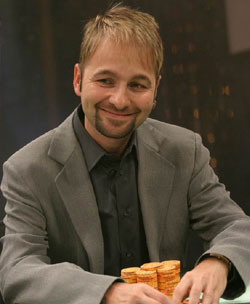 If someone describes your style of play as being low, let's just say you're in l embarrassment. In fact, the weaker players are those on which you should focus when you're at a poker table. Instead you attack players strongest, fiercest and most aggressive, you may be less - and would earn more - if you attack players weak, timid and passive.
If someone describes your style of play as being low, let's just say you're in l embarrassment. In fact, the weaker players are those on which you should focus when you're at a poker table. Instead you attack players strongest, fiercest and most aggressive, you may be less - and would earn more - if you attack players weak, timid and passive.
In order to tackle weak players properly, the first thing you need to do is identify. There are usually a few clues that you can search even they are not always accurate, but which could nevertheless:
(1) how the player wears. If someone dressed very conservatively, it will usually play poker in this way! Is it s dressed in eccentric and visionary manner, his game will be probably more aggressive or flamboyant.
(2) how he speaks. This is in accordance with previous index: whether it is quiet or shy in his way of speaking, the chances are that his way of playing poker is the same. Also, if you are dealing with a large aggressive conversationalist, it is more likely that the player is aggressive. Conversely, if you are dealing with a shy and little talkative player, chances are great it plays that way.
(3) raise before the flop or s it is qu call the bet? If he loves limping on a regular basis, you might be dealing with a weak player.
(4) like bet, pass or call? Aggressive players are the Wagerers while low gamers tend to spend or simply call the other updates.
Once you have identified the low player, it is time to use some strategies against them. Weak players are undoubtedly adversaries easier to cope. In fact, your cards often do not matter since they are so predictable!
The key think is them pounding systematically as an anvil repeatedly until they s collapse by themselves. Almost like a bully in school who would like your lunch money. If they continue to give it to you, you continue to take it.
When you position on a small player, it makes your life easier, so you want to seek out opportunities to play against him in a one on one situation.
How do you do that? Well, when a low player limp in a pot, you try to isolate it with a decent raise to sunset the other players in the hand, while keeping the low player. If the player is extremely low, it n has no significance if you 72o in your hand! You do not play your hand anyway, you play the player.
So, if you can be alone against the low player with position, you can let his actions dictate what you should do. If the low player bets the flop, you can be pretty sure what he has a good hand. Thus, if you do not hit a very good hand on the flop, it is time for sleep you to.
If the low player passes on the flop, then you should bet regardless of what you have. The only case where you might want to pass also is if you hit the nuts and want to give a free card. Otherwise, you should always bet the flop to win the pot immediately.
Again, if a weak opponent you check - raise, run and hide! Unless of course you also have a very strong hand.
The difficult decision happens when the low player decides simply to call the bet, it will often do. At this point, you must take time for reflection and study the game in order to know if your opponent has a hand in draw or an already made hand.
Since your opponent is low it will not provide you much information on his other hand that does what he plays. Generally, a low player will pass and will call with one hand already made (such as top pair) qu a draw.
Thus, as a general rule you should proceed with caution if a low player calls your bet on the flop. If you have a good hand, you obviously should bet, but if you're bluffing on the flop and the low player calls this update, you should pass on the turn because it will have shown some interest.
Written by Daniel Negreanu and published in Card Player magazine strategy article
Translation: Jean-François mercury
Questions or comments about this article? Click here.
-
Dominate his ego< Prev

